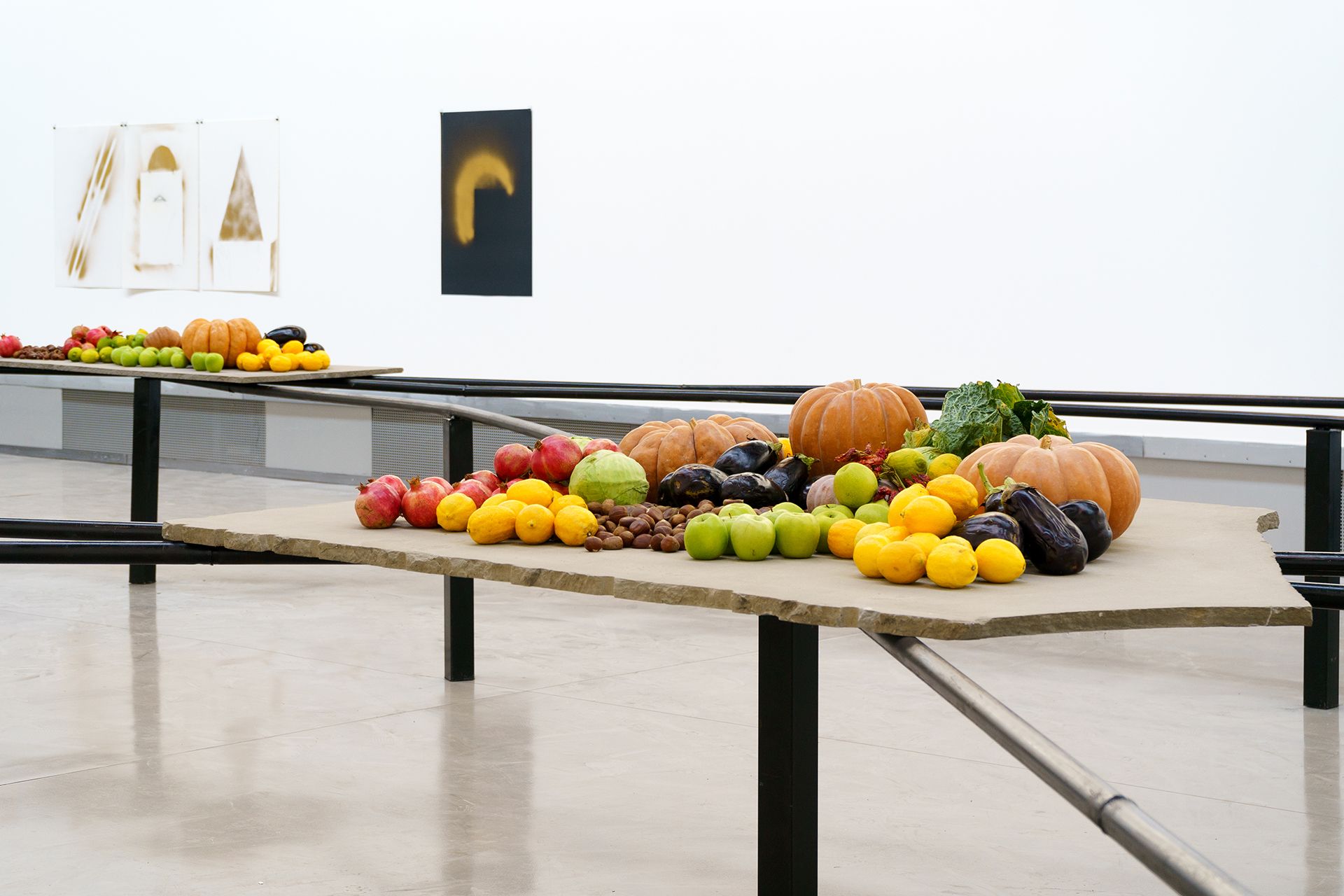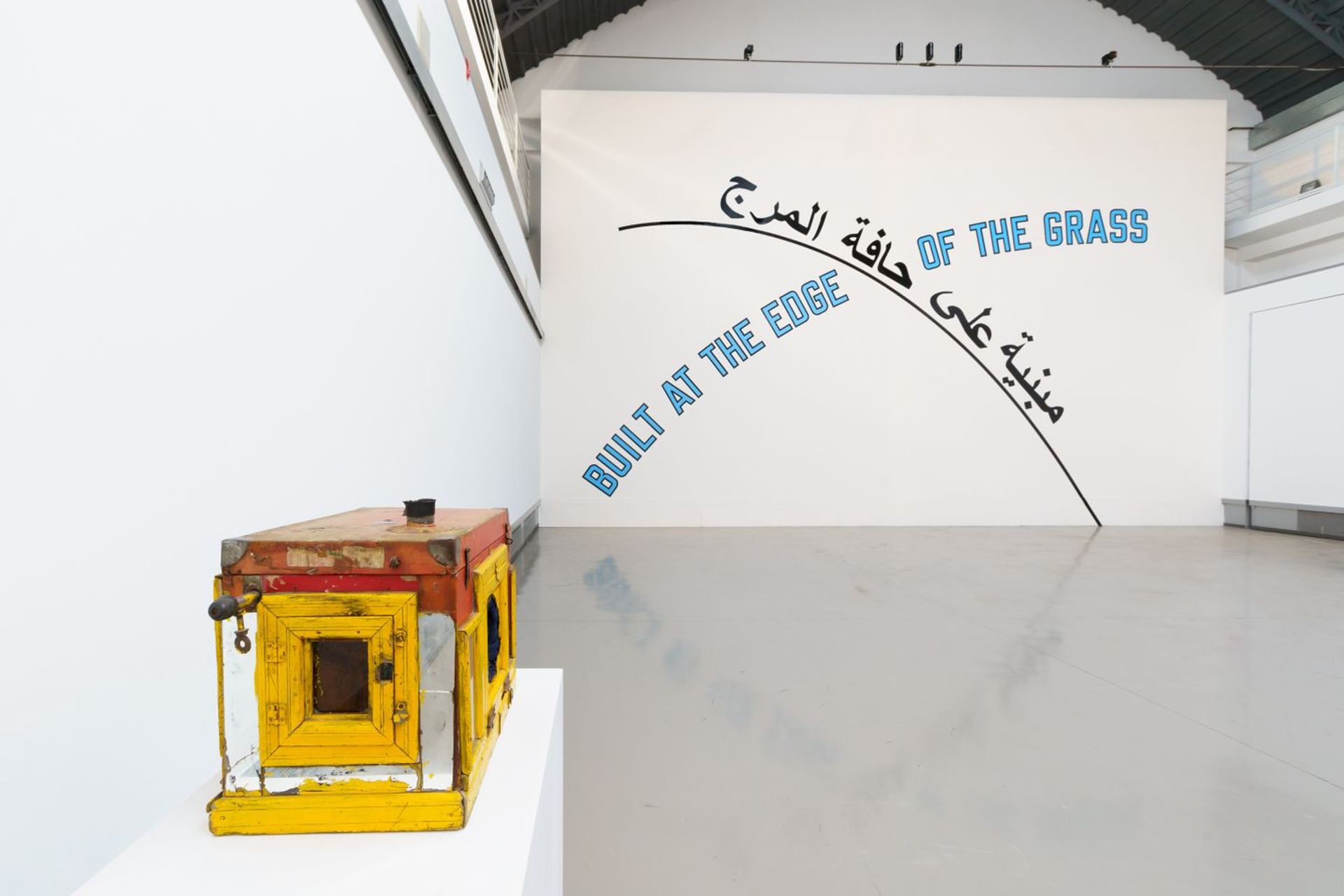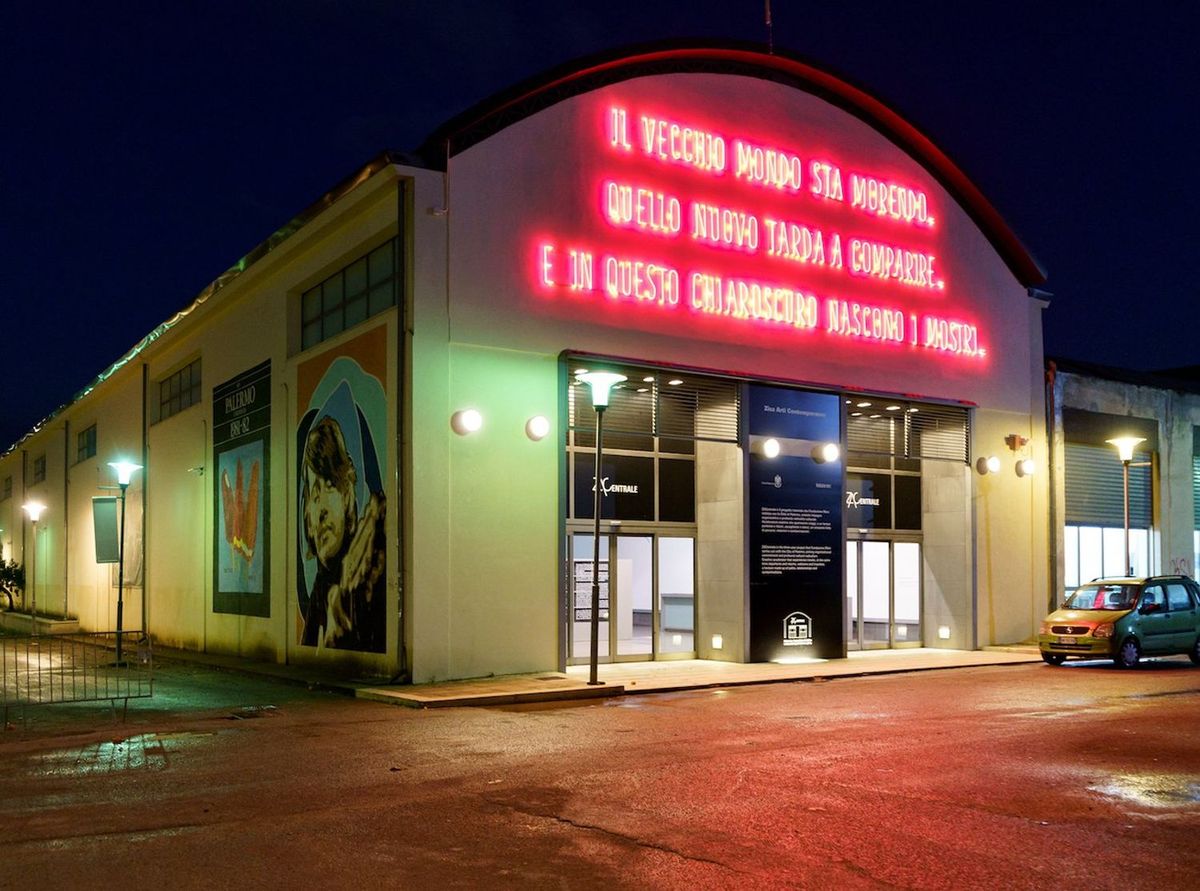Since being crowned European Capital of Culture in 2018, Palermo's art credentials have continued to flourish. Its latest offering: a new outpost of the Merz Foundation, a contemporary art space in Turin dedicated to the work of the late Arte Povera artists Mario and Marisa Merz.
Taking over a vast factory building in the Cantieri Culturali alla Zisa, a former industrial park on the Sicilian capital's outskirts, the foundation has signed a three-year lease with the local municipality to deliver ZACentrale, a cultural programme that its organisers are banking on to transform the area into a thriving contemporary art hub.
The Merz Foundation joins a number of other organisations that have cropped up in the area since early 2020, including a photography gallery and a kunsthalle sponsored by the city of Dusseldorf known as Haus der Kunst #1.
Previous attempts have been made in the past decade to regenerate the area with little success, says ZACentral's curatorial co-ordinator, the Sicilian artist Agata Polizzi: "The Cantieri Culturali della Zisa, and in particular the ZAC pavilion, have had a history of ups and downs." However, she has sensed a turning point in recent years, which she attributes to "the ability for new organisations to structure themselves into a network of bodies with a coherent programme".

What defines ZACentrale's programme, according to the Merz Foundation's director Beatrice Merz, the daughter of Mario and Marisa, is its focus on the "world of theatre, music and poetry" in relation to contemporary art. Grounding its vision in Arte Povera's core tenets: to emphasise the links between art and daily life, and to breakdown hierachies within art, Merz hopes for visitors to consider how these artistic forms could evolve together, functioning as an "incubator" for creative experimentation.
The inaugural exhbition, L'altro, lo stesso (the other, the same) (until 26 March), brings together 12 artists, including international names such as Joan Jonas and Alfredo Jaar, as well as never-before-displayed works on paper by Marisa Merz. At its centre are two enormous helix installations by Mario Merz from 2003, which feature fruit and vegetables arranged on stone slabs. Once ripened, the produce is given to Nuove Officine Zisa, a nearby crafts workshop, and then replaced, signifying the types of artist-led gestures that the foundation hopes will foster a strong community between neighbouring organisations.
A "city of migrants"
Importantly, as both Merz and Polizzi make clear, the space should not feel like the outpost of a northern Italian foundation. Rather, they hope to forgeound Palermo's history as an important port on the crossroads of Europe and Africa—Sicily was once ruled by Arabs for over 100 years—marked by a long history of empire, trade and migration.
Inroads have been made between Sicily and the Merz Foundation since 2014, and since then it has staged 17 exhibitions in Palermo, made possible through a close relationship with the city's mayor, Leoluca Orlanda, a centre left-leaning politician whose cinematic rise to power has involved the mafia murder of his colleague and multiple attempted assassinations.

Installation view of The other, the same, ZACentrale, Palermo (26 October 2021–26 March 2022). Lida Abdul, Time, Love and the Workings of Anti-Love (2013); Lawrence Weiner, Built at the edge of the grass (2007). Courtesy the artist, Galleria Giorgio Persano, and Fondazione Merz. Photo: Filippo M. Nicoletti.
Orlando's longstanding battle against the tide of rising nationalism across Europe made headlines in June 2017, when, defying orders from the Italian government, he allowed a ship bearing 629 migrants to be rescued off the coast of Libya and to dock in Palermo. "We are a city of migrants with a history of absorbing outsiders, having been dominated throughout the ages by Arabs, Byzantines, Normans and Romans," he told the Guardian at the time.
Indeed, despite the threat of a right-wing mayor taking seat next year and putting paid to this burgeoning cultural hub, this spirit of openness is aparent in much of Palermo, attested by the number of artists who have recently flocked to the city. "Over the past ten years, many intellectuals and artists have chosen Palermo as a city to live in, precisely because they have found spaces of freedom in which to cultivate ideas," Polizzi says.
Covering the back wall of ZACentrale's space, the artist Lawrence Weiner has interpolated an English sentence with Arabic script: a clear message of the cultural openness that the Merz Foundation believes to be at the core of Palermo's identity.


